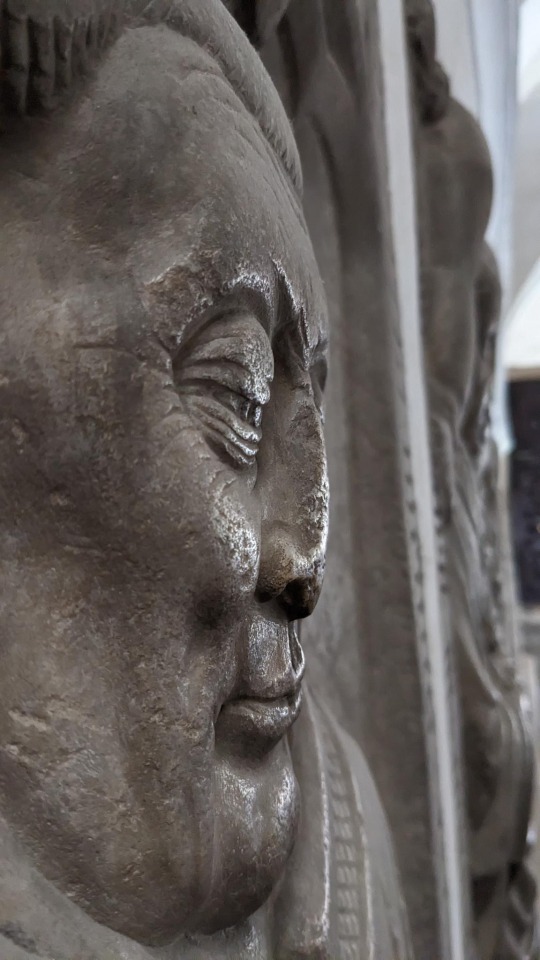#Hermann Burger
Explore tagged Tumblr posts
Text

“115. His whole life long, Robert Walser was so doggedly self-effacing - I think here of vernütigen, a dialectal word for debase, but also for annihilate - that in the end, he was too small to destroy himself.” - Hermann Burger, ‘Tractatus Logico-Suicidalis: On Killing Oneself’ (1988)
19 notes
·
View notes
Text
Brenner by Hermann Burger, translated by Adrian Nathan West

. . . the stalwart maxim nomen ist omen. . . . (p. 4)
***
And Proust says of novel-reading that it is magical like a deep dream . . . (p. 10)
***
There are ur-phenomena of tone, color, and scent often predestined, so to speak, irrespective of their contingent nature, to tune an existence like a stringed instrument; and the adult, when he attends a concert, an exhibition, a theater opening, searches, as though after a vanished picture book, for the traces of these earliest magical impressions. I remember very clearly one afternoon at the Waldau, my grandparents' restaurant, I must have been three at the time, when I was ordered to take my obligatory nap, which was always a torment to me, for just as in the corner in my parents' bedroom in the manufacturer's villa on the Sandstrasse in Menzenmang — fabrikants, the noblest genitive — there, too, in the so-called Jews' Salon on the landing overlooking the salon, I was tied down with rubber cords, the door was left open, I could hear the rush of the Wyna coursing through the valley, the hammering of the riveters in the die works or the rolling mill, the shunting of the Rollbock boxcars at the aluminum factory, the piping of a locomotive, perhaps, like a faraway shriek, schoolchildren on the playground, apart from all that just tedium, counting dead flies, the scuff of chair legs in the parlor, the click and clack of billiard balls muffled at times by felt, my parents often helped my father's sisters during service, if a special occasion was afoot, they'd shwoop in, they may have been setting the table for the Frohsinn men's choir, because the swinging door to the office flapped repeatedly open and closed, and a diffuse activity reigned in the garde-manger. The child, bound and sleepless on a very bright day in bed — paradox of paradoxes — tries to orient himself, and all of a sudden hears a scattering of piano chords curtly struck, gliding up so softly they bring tears to my eyes, a breath of Sylvester's Day magic in the midst of a summer workday; I was still a little cheroot, I understood nothing of music, but years later, when I had my harmony lessons where my father's cousin lived, at the Pfendsack house on the Ölbergstrasse, I managed finally to grasp what it was that had taken hold of me, to analyze this series of tones that seemed to drift like flakes of gold in bottles of Danziger Goldwasser, a descending melody from major and minor sixths, the series, intended for C major, must have opened with the G-E interval and ended with F-D, that is, descending from the tonic with the 6/4 chord without C from dominant to subdominant — which corresponds to the melancholy of blues — but instead of stopping at A-F, it fell two steps further to D minor.
As we know, the young Mozart could drive his father to the verge of madness with an unresolved seventh, but far more galling was this insistence on F-D, an interval which, with its suppressed A minor, demands the G seventh and a release through the tonic, and I had to endure this tension not only through two hours of nap time in the Jews' Salon, but through the entirety of puberty until my harmony lessons began; and considering it might just have been the servant girl, Irmeli, in a transport of sportiveness or sorrow, who struck the nicotine-yellow keys of the ordure-brown Burger & Jacobi piano, the indulgent reader may gather from these tobacco sheets the ways fortuity reigns in the childhoods of creators, artistes, better said, but even more so, how immense is the power of music — here nothing less than magic — over as yet uncultivated natures. Still, I couldn't help but cry, because the descending cadence G-E, F-D, E-C, D-B, C-A, B-G, A-F, G-E, F-D recalled to me the painting of corn fields in the salon, a restrained landscape study in tender lilac, muted gold, and dusty green, showing the stretch of land beneath the Stierenberg, not far from the Waldau, where the Erlkönigstrasse skirts the Wachtal meadow next to de drüeich, the three oaks, before wending its way to Rickenbach. All the little oil in its white stucco frame showed was a softly curving path lost in the stalks of a swaying grain field with hints of red poppies under the taut, desolate balloon silk of a summer sky with scant ribbons of storm clouds. Just like the major sixth, with its polka-like opening, the breach in the cornrows ended in a no man's land that presented a riddle to the child stewing in his boredom, yearning all the while for his mother: what happens to the path after it curves, is it even still there in the depths of the picture? Decades later, gravely ill, in autogenic training, as I recited over and over the mantra "My breath is calm and effortless, my forehead is cool," I would hallucinate this mauve-gold cornfield; in the deckchair beneath the Canadian silver poplars on the gravel terrace in Menzenmang, I felt the ache for this painting of cornstalks; on Doctor Rohnstein's couch in Buchs, this image from the Waldau materialized; everywhere, always, this single landscape. (pp. 21-24)
***
. . . Nonsense alone makes bearable a world where everything strives for a higher sense. (p. 73)
***
Though it is only late in life, via a gratifying digression on cigars, that I have finally put ink to paper, let the apprehensive rest assured, l'appétit viendra en mangeant, my debut in this dubious métier will likewise be my farewell, but there is one thing I know, to second Bert May: our backbreaking labor is an archeology of the soul, there is no remembrance without fiction, no recollection without invention, true poets, from whose ranks this thwarted tobacco salesman is naturally excluded, are those who live by lying, who lie like print, as the German adage has it, and as we note here a certain consonance among the words lie, lure, and louche, we cast doubt on how things really were and cajole the indulgent reader to follow us into the regions where the subjunctive reigns, how things might have been; we use metaphor — from the Greek metapherein, to carry across, according to Bert May — to grant coherence to that which simply cannot have occurred, for life is a dice game, through a long night of play you may wait in vain for the six to come up, out rolls one after exasperating one; or else a wheat-blonde fairy announces six lotto numbers on the TV screen — a stroke of luck that never comes for millions but lands twice for a select few — hence the high art of creation may be thought superior to life, because the scribbler does not leave the order of the balls to chance, literature is the award of that once-in-a-lifetime jackpot. Here my friend Adam Nautilus Rauch will vigorously object, that still and all, the world has its laws, physical, botanical, chemical, astronomical, and it would be a deep affront to his earnestness in the enjoyment of life — a credo for which I would declare my utmost respect, were the duration of my existence not curtailed by a terminal diagnosis — to see literature and art confounded with magic and games of chance: what do craft and trickeration have to do with the linguistic organism, the swindler relies on the marvels of a moment, the epic poet is an artist of perpetuity, the sorcerer's appearances deceive, the creator's, however much he lies, do not. And the critic — my two boys' local Sigismund Markus — has urged me, after a cursory inspection of these pages, to stick to the relevant facts of my life as a cigarier, ye hef te know how te dishtinguish relevant en irrelevant. (pp. 129-30)
***
The method of the captioned sketch, as opposed to the snapshot taken with the camera, I owe to my first-semester drawing lessons with Professor Hans Ess, it allows us a horizontal projection with four planes, same as the ones I executed as a child absorbed in simultaneous perspective; in contrast to the photograph, it puts not everything to paper, but only what corresponds to the inner architecture of our intentions, we may magnify details, scale becomes flexible, and, let me add, the drawing takes us an hour, whereas controlling for lighting, fiddling with the bells and whistles, pressing click takes no more than a few minutes. In this hour's work we see more, and more precisely, than during that post-mortem pasting of our memories into an album; we are not like tourists reminiscing about having been "there," even if, admittedly, these tobacco leaves attempt to share with the reader how, for the span of a brief, heady happiness, we were allowed to be citizens of the earth. (pp. 165-66)
***
You see, Herr Brenner, what we have here is a marriage of poetry and tobacco, in the fifties of the preceding century the custom in the workshops of Don Jaime Partagas was to read Victor Hugo aloud while binder, wrapper, and filler were rolled, and in the days before the war for Cuban independence, the galleys were hotbeds of agitation. They banned reading or commenting on the news of the day, and this led to popular uprisings. In his memoirs, Zino affirms that the Cuban independence movement, which finally proved victorious in 1901, had its birthplace in the historic cigar factories. Radio first made inroads at Cabañas y Carbajol, a top brand that is sadly no longer around; nowadays, Castro's teachings and pop music have pushed poor Hugo aside. Imagine if, instead of the oldies, they recited Gabriel Garcia Márquez, whom admittedly I myself have never read? And so on and so forth with our disputation . . . (p. 204)
***
Will neither of the esteemed versifiers take a bit more trout? No, Frau Irlande has had enough, Bert has already lit one of his black cigarettes, betraying his boorishness par excellence, but Hermann Arbogast Brenner, as per previous, will not stage a war of religion over the sore point of dry drunkenness, he gathers the fish scraps as his cemetery-grandmother used to do, and while poetess and poet amble off into the garden, perhaps to recite in tandem Hesse's "Lanterns on a Summer Night" in the niche or next to the gurgling fountain, I take the plates to the hunter's room and try to persuade Hombre, still sleeping off his stupor from the cider, to partake of a cold fillet of trout. He is lying there beneath his woolen blanket; his smooth skull, dotted with warts, moles, and pimples, is tucked into the crook of his arm; he has not even removed his coattails, and I think to myself, no one incapable of describing such a soul's inner life deserves the title of poet, for on the brackish surface of its waters, where the fires of eau-de-vie burn, skim the wrecks of svelte ships that poetesses have sent forth sailing into night, it may be, I think heretically, staring at the serpent in the spirit jar, that the eminent Georges and Rilkes and their like thrive in a soil of profound inhumanity; men like Hombre are the base matter their hearts transform into sublimity, the fate of the nameless is the price paid for the crystalline phrases printed in cursive in the Neue Zürcher Zeitung, the elf-queens suck their blood, inhuman, because their verses tread on corpses. The precious essence of O-so-noble compassion is only to be had at the cost of someone else's going to the dogs. And this is the basis of the thoroughgoing mendacity of the artist's calling, because what the public sees is the twinkling diamond and never the fathomless shafts where the kaffir breaks off the precious stones, it's a fact, the lyricist's trade is Apartheid. (pp. 304-05)
***
When my beloved wife and two sons, whom I coddled like seedlings in the soil of Vuelta Abajo, fled Brunsleben like rats abandoning a sinking ship after years of attrition from my illness, one and all among my circle agreed that I couldn't hold it against them. My friend Fernanda Blanca of Blankenberg shot me a stare hot with indignation: Don't you understand, no one could take all that. Her feminist-tinged protest suffers from a single logical failing. There is one person who must take it, and that is the depressive himself. And here is where the glaring injustice lies: he is forced to cling to the war hero's code, the kamikaze mentality of fight to the last man. O numberless dilettantes of mercy! A rule-abiding Exitus exitus with the help of one hundred tabs of Vesparax could still be portrayed as euthanasia. Do you not see that Hermann Arbogast Brenner could more calmly make his peace with the world if a higher court would lend him a thoughtful hand in view of his life's unbearableness? Do you not see his salesman's pride prevents him from taking the blame for this faillisement? But no: all others have the right no longer to stand him, he alone is condemned to endure his own sinister company. And he will never forgive you this grave offense: that in your schadenfreude, you left him to smolder in his hell. Let us temper that a bit: he would never have forgiven you had he not discovered in the Stechlinesque spirit of Brunsleben a medium that unmasks your diabolical self-righteousness — in tobacco, a potion against the danger of earthquakes in mind and spirit. (pp. 350-51)
***
A miser is not just someone who pinches pennies, who doesn't like to splurge or give, it is a person who never treats himself. He labors under the delusion that a little ledger exists in Heaven with an annotation in the profits column stating that he made it to a hundred by shopping at the organic market. All the world's misery originates with underachievers. Hitler had to kill millions for failing to achieve his dream. Had he known, like Churchill, how to savor a Havana, there would never have been a Second World War. (pp. 352-53)
***
At this point, at the latest, Hermann Arbogast Brenner must bring this analogy to an end, for a lover never is and never will be a luxury good to be savored, but a person with her own contradictions. A cigar can be procured when the craving strikes, a woman who shares not just our bed, but our miseries, cannot. To meet one is a gift, a bit of mercy, even. Love is not an exchange of hormones, but the highest, happiest hours this crippled planet holds in store for us. You can be happy alone with a cigar, but not in love. The blue haze gets lost in the ether, our wish to be understood by someone will never go away. If it did, we would be lost forever. The rose may bloom without ifs and buts, and unfold its splendor in a graveyard. But it can only be called happy when it is found and plucked. (p. 354)
***
One formal reminiscence after another rose to the surface. If I registered every detail of the artist's treatment of the satchel as it floated off in the tragedy of Johnny-Head-in-the-Air, if I saw there was no need to redraw the river in every scene, that the narrowly hatched waterway already suggested distance, this was the discovery of an important aesthetic principle: the representation of the general through the particular. I turned my entire attention to these details now. Here were the three fish. They jumped from the cool water as Johnny stepped over the wall of the quay, they swam off in haste as he tumbled inside, bunched together they observed as he was pulled out with a long pole, with a laugh they looked up at the sopping wet dimwit. This was the foundation for my success as a draftsman in all the contests held by clothing brands, department stores, and automobile factories that I sent my sketches to. I must thank Amden for this, in part. For it was pain that made me see. (pp. 379-80)
***
Unto ashes shalt thou return, for nowhere is it written man has a right to a modicum of bliss. (p. 399)
0 notes
Text
I spy with my little eye a young Jason and Pedro!

credit: therealbradalous
I also spied the actress who voices Louise from Bob's Burger, Samantha Smith from supernatural, and I believe Mariska hargitay's husband Peter Hermann.
According to Brad this was a serial soap opera that they were in called the cartells. I assume this was possibly around 2007-2009?
12 notes
·
View notes
Note
you might like tractatus logico-suicidalis: on killing-oneself by hermann burger. a book of aphorisms so an easy read, i suppose. it was recently translated (last year) into english iirc. it's available on anna's archive. i thought it might be up your alley
Thank you, I will absolutely check this out.
For anyone too lazy to do the search: here.
Shout-out to Anna's Archive.
9 notes
·
View notes
Text
Tag 26, Freitag, 26. Mai
Es gibt zwei neue Brixenfans. Nicolas und mich. Toll hier!
Morgens haben wir etwas Bedenken den Camper zu verlassen wegen Eriks rotem Ausschlag um die Augen. Wir versuchen erstmal ihn vor Sonne zu schützen und dann geht’s los.
Wir sind begeistert. 10 Minuten mit dem Bus in die Altstadt. Erik schläft fix ein und wir gönnen uns zwei Cappucino und ein Spaghettieis. Sehr romantisch. Neben uns eine Herrenrunde - bei dem einen, der gerade etwas auf italienisch vorträgt, denken wir an Hermann.
Danach besichtigen wir den Brixner Dom und den Kreuzgang. Wir halten nach Beates Elefanten Ausschau und entdecken erstmal den falschen, später dann aber den richtigen.
Dann wird erfolgreich gebummelt: eine Badehose für Nicolas, leckeres Brot (schmeckt fast wie ein Vinschgerl), Speck als Mitbringsel, etwas für die Mami,…
Zurück gehts am Fluss entlang. Uns gefällt die Kombination aus den alten weißen Bauernhäusern mit Holzverkleidung an der Traufseite, den kubischen modernen Häusern, häufig aus Sichtbeton und ebenfalls mit Holzelementen und am Fluss ein Geländer aus Cortenstahl.
Am Platz springen wir zu zweit ins kühle Nass bei 26.5°C im Schatten. Ein Traum!
Nachtrag: Wir sind unter Schwitzen noch schnell zum Brunnen der sieben Weltwunder und jetzt gibt es Burger.










5 notes
·
View notes
Text
I was tagged by @krongulous to do this thing called “9 people I’d like to know better” so thanks ubi!
•Last song I listened to
Back to the old house - The smiths
i cant lie im listening to my incel playlist rn ... yk ... incel music ....... NO ONE CAN STOP ME
•currently watching
bob's burgers !!!!!!!!!!
i fucking love bobs burgers hehehe im continuing watching it bc i finished watching steven universe future a few days ago (and im completely devastaded (and also mad at some things)) i really recommend bob's burgers theyre all so silly and autistic :3
•currently reading
Demian by Hermann Hesse
LISTEN this book is AMAZING ,, it's taking me A LOT of time to read it bc im currently studying for finals but this book consumes my entire brain when im reading it istg im obsessed with the characters and how the story is told
•current obsessions
uuhh homestuck . . . also clone high (a bit (homestuck is consuming me)) but inazuma eleven will make a comeback once im finished with exams !!!!!
For 9 mutuals to do it I’ll tag @autism-connoisseur @sillylesbianism @tanikarmat @gwyb AND ANYONE ELSE WHO WANTS TO DO IT :3c
5 notes
·
View notes
Link
0 notes
Text
Im Schatten des Seins: Ein imaginärer Dialog über das Spiel des Lebens und die Kunst des Aufschubs
In einem schummrigen Pariser Café saß ich mit Emil Cioran und Hermann Burger an einem Tisch, umgeben von dem sanften Murmeln fremder Stimmen. Der Raum war erfüllt von der Eleganz der Vergänglichkeit. Eine gedämpfte Leere, die dem Geist Raum ließ, sich zu entfalten. Vor mir lag die Leere einer Frage: Was bedeutete es, das eigene Leben zu spielen, mit dem Sein zu ringen, es immer wieder in Frage zu…
0 notes
Text
The story of Florence Foster Jenkins, a New York heiress, who dreamed of becoming an opera singer, despite having a terrible singing voice. Credits: TheMovieDb. Film Cast: Florence Foster Jenkins: Meryl Streep St. Clair Bayfield: Hugh Grant Cosmé McMoon: Simon Helberg Kathleen Weatherley: Rebecca Ferguson Agnes Stark: Nina Arianda Phineas Stark: Stanley Townsend John Totten: Allan Corduner Earl Wilson: Christian McKay Carlo Edwards: David Haig Dr. Hermann: John Sessions Kitty: Brid Brennan Arturo Toscanini: John Kavanagh Mrs Vanderbilt: Pat Starr Mrs. James O’Flaherty: Maggie Steed Mrs Oscar Garmunder: Thelma Barlow Mrs EE Patterson: Liza Ross Baroness Le Feyre: Paola Dionisotti Mrs Patsy Snow: Rhoda Lewis Lily Pons: Aida Garifullina Augustus Corbin: David Mills Carlton Smith: David Menkin Cpl. Jones: Sid Phoenix Pvt. Smith: Tunji Kasim Orlando Adams: Carl Davis Microphone Engineer: Lloyd Hutchinson Elevator Operator: Richard Kilgour Ernest Ziegler: Jonathan Plowright Donaghy: Josh O’Connor Tallulah Bankhead: Nat Luurtsema Colonel: Ewan Stewart Gino: Cameron Cuffe News Vendor: John Guerrasio Edgar Booth Cunningham Jr: Elliot Levey Clifford B. Thornton III: Danny Mahoney Cole Porter: Mark Arnold Film Crew: Writer: Stephen Frears Director of Photography: Danny Cohen Screenplay: Nicholas Martin Producer: Michael Kuhn Producer: Tracey Seaward Editor: Valerio Bonelli Casting: Kathleen Chopin Casting: Leo Davis Casting: Lissy Holm Art Direction: Gareth Cousins Art Direction: Christopher Wyatt Production Design: Alan MacDonald Costume Design: Consolata Boyle Supervising Art Director: Patrick Rolfe Script Supervisor: Sue Hills Music Director: Terry Davies Music Editor: Stuart Morton Music Supervisor: Karen Elliott Assistant Costume Designer: Rosie Grant Costume Supervisor: Marion Weise Camera Operator: Iain Mackay Gaffer: Paul McGeachan Camera Operator: Lucy Bristow First Assistant Camera: Andrew Banwell First Assistant Camera: Iain Struthers Additional Camera: Jason Ewart Special Effects Supervisor: Manex Efrem Visual Effects Coordinator: Jenny King Visual Effects Producer: Noga Alon Stein Visual Effects Supervisor: Adam Gascoyne Visual Effects Editor: Edd Gamlin Sound Effects Editor: Phil Lee Sound Re-Recording Mixer: Dafydd Archard Sound Re-Recording Mixer: Mike Dowson Supervising Sound Editor: Becki Ponting Supervising Sound Editor: Ian Wilson Makeup Artist: J. Roy Helland Hairstylist: Anita Burger Hairstylist: Andrea Cracknell Hairstylist: Beverley Binda Makeup Designer: Daniel Phillips Makeup Artist: Karen Cohen Makeup Artist: Tahira Herold Wigmaker: Ray Marston Digital Intermediate: Rob Farris Digital Intermediate: Patrick Malone Digital Intermediate: Gemma McKeon First Assistant Editor: Karenjit Sahota Stunt Coordinator: Eunice Huthart Stunt Coordinator: Jo McLaren Assistant Art Director: Aoife Warren Original Music Composer: Alexandre Desplat Foley Artist: Andrea King Conceptual Design: Elo Soode Carpenter: Josh Wood Movie Reviews: Reno: **Nothing is greater than to have a supportive life partner by side.** I follow closely what films are announced and what are getting released. Sometimes its common that some films comes out without my knowledge, particularly non-Hollywood English language films. This British film was about a wealthy couple from the New York, especially the husband who tries his best to fulfill his seriously ill wife’s dream to be an opera singer. The problem is she’s not any good. Not just him, but everybody who is close to them and once laughed at her, try to understand them and give their support. But not all the occasion seems to remain the same. So on one such a big event, the disaster strikes and how it affects the couple is the rest of the tale to disclose. A very surprising film. I thought it was just a comedy like it brings small smiles on our face, but I laughed out loud on many occasions. This is definitely a right time, because I felt like it was a music and cinematic version of the American presidential candidate Don Trump. Yep, there not much difference, but still this ...
0 notes
Text

“113. Presuicidal neurosis begins in early childhood and leads to severe impairment of the sense of self-worth; constructive aggression transforms to destructive aggression, which strikes out against the surroundings and the self. In this way, death develops into a short-term rather than a long-term objective, and the suicidarian - often unconsciously - starts working toward the acceleration of his end.
114. He sets forth on his march into Russia.”
2 notes
·
View notes
Text
Everything you see at this luxury hotel is for sale, for the right price
The renowned Baccarat Lodging in New York City is one of the city's most fabulous problem areas. Something that one can't resist the urge to see is all the glass on show. UAE hot drinks Market Venturing into the anteroom, one is promptly struck by seeing light fixtures, precious stone containers, and glass lights.
Indeed, even the lodging bar is a stage above most settings, with mixed drink costing up to $450 per drink.
In any case, what truly isolates the Baccarat Lodging separated from its rivals is the way that everything is available to be purchased, at the right cost. The buying idea, which will start one month from now, is a straightforward one. Should something grab your attention, you can arrange it. You can add everything from the dish sets your savors come to the $216,600 ceiling fixtures in the entry to your bill.
To try not to seem gimmicky, Baccarat has been beta-trying their strategy throughout recent months and they think they've tracked down the arrangement.
The fundamental reason is that when you plunk down in the parlor for beverages, tea, or your night dinner, you'll get two menus. On one will be the very good quality food and drink that you'd anticipate in such an extravagance foundation. The other will have rather less elible admission - gem. Hermann Elger, head working official, says the discussion will resemble as follows:
There's likewise an entire 88 page custom index, should visitors wish to get more familiar with the gem. The list will contain data about assembling and the chronicles of a specific plans. There's even a 'precious stone representative', Florian Casanova, who fills in as a maitre'd at the lodging. He went through extra instructional classes to learn addresses generally glasslike questions.
The precious stone buys will be put on the burger joint's tab. The inn will then, at that point, transport your thing to an area of your decision in a Baccarat red box.
For more distribution channel insights, download a free report sample
0 notes
Text
OTP
First: Fritz/Jo from Little Women | Latest: Joe/Nicky from The Old Guard | Favorite: Hermann/Newt from Pacific Rim
OT3
First: Haruka/Michiru/Setsuna from Sailor Moon | Latest: Lavinia/Mary/Matthew from Downton Abbey | Favorite: Bob/Linda/Teddy from Bob's Burgers
BroTP
First: Jo and Laurie from Little Women | Latest: Daenerys and Missandei from Game of Thrones | Favorite: Inner Soldiers + Mamoru from Sailor Moon
Family
First: The Ingalls from Little House on the Prairie | Latest: The Belchers from Bob's Burgers | Favorite: The Belchers from Bob's Burgers
Found Family
First: The Nine Walkers from The Lord of the Rings | Latest: The Old Guard from The Old Guard | Favorite: The Hong Kong Shatterdome from Pacific Rim
Relationship Game
Fill out each slot with your answers. Feel free to include fandoms, the whys, whatever you like. If you don't have an answer, just leave that one blank. Please be nice and don't rain on anyone else's parade!
First OTP:
Latest OTP:
Favorite OTP:
First OT3:
Latest OT3:
Favorite OT3:
First BroTP:
Latest BroTP:
Favorite BroTP:
First Family:
Latest Family:
Favorite Family:
First Found Family:
Latest Found Family:
Favorite Found Family:
#Notes by Nikki#tumblr#tumbling#tumblring#game#shipping#ships#relationships#tumblr game#I was going to include NOTPs#but I didn't want to invite negativity#polyshipping#multishipping#polyships#multiships#found family#this was hard!#I tried to remember as far back as possible#plus having to choose between my favorites#Poly Inner Sailors as well as All Unrelated Sailors are beloved#The Crawley family is a favorite#newmannessa is of course a classic#I could name ten polyships off of my head#so these are my favorites RIGHT NOW
17 notes
·
View notes
Text
L’Illettore: una confessione di Hermann Burger

Osservazioni cliniche effettuate in vari casi di trauma cerebrale permettono di affermare che la lettura non è un'attività globale dell'intero cervello, ne sono interessate solo determinate aree nella parete alta dell'emisfero dominante. Con la soppressione di queste zone della corteccia cerebrale il soggetto può perdere di colpo, parzialmente o del tutto, la capacità di leggere. Questa malattia viene chiamata alessia, cioè perdita della memoria delle lettere dell'alfabeto.
“L’illettore: Una confessione” di Hermann Burger è entrato nelle mie cose da leggere perché me ne sono innamorata durante una mia scorribanda nello stand de L’Orma Editore durante il Salone del Libro. L’Orma è una delle mie case editrici preferite, perché non solo non mi delude mai ma riesce ad unire competenza, accuratezza e originalità. E anche in questo caso colpisce nel segno.
Rinchiuso in una misteriosa e metafisica gattabuia, un uomo, affetto da uno strano morbo che gli impedisce di leggere i libri e di decifrare i segni del mondo, cerca la guarigione nel rapporto epistolare con una radiosa principessa, vestale dei classici letterari di ogni tempo. In sette vertiginose missive l’«illettore» racconta la propria vita come una «morte apparente». La narrazione, pagina dopo pagina, si trasforma in terapia per riaffacciarsi alla speranza e all’immaginazione, un percorso capace di regalargli infine l’euforia della convalescenza. Libro ossessionato dai libri, corso intensivo per lettori convulsi e dissennati, questo romanzo è un viaggio all’interno di una miniera oscura, ricca di frasi e immagini lucenti, sfaccettate ed enigmatiche come pietre preziose. Allucinato esperimento su «quanto in là si possa andare nello spingersi troppo in là», la confessione di Burger è anche – come rivela il breve saggio autobiografico che chiude il volume – il documento unico di un’esperienza di depressione clinica, un ironico «tentativo di sopravvivenza in prosa» scritto contro l’oblio: «Lo scrittore non dimentica mai, serba rancore in eterno».
Burger parte da una sua condizione esistenziale per raccontarne un’altra, che sembrerebbe non esistere ma che invece racchiude il mal di vivere di un intero gruppo. Possiamo certamente considerarla una metafora per una condizione più ampia, ma è l’immagine che atterrisce ogni lettore consistente, che prova nei confronti della lettura un amore viscerale e irrinunciabile. L’illettore quindi non è chi non legge e basta, ma chi prova una sorta di rifiuto e di ribrezzo per qualsiasi tipo di parola scritta. L’illettore è colui che rifugge i libri, il peso della carta, l’inossidabile sensazione di pace che può regalare lo stare in una qualunque posizione comoda con un volume aperto in grembo. Trattandosi di un romanzo epistolare e a senso unico, si potrebbe avere la sensazione di trovarsi in un libro un po’ sconclusionato, una raccolta sparsa di sentimenti che mancano di logica e di rigore. Invece Burger nella sua corrispondenza con l’eccelsa signora dei libri, descrive minuziosamente la sua malattia, con i suoi sintomi e il suo lento aggravarsi, e naturalmente come cerca di curarsi. La sua è una condizione spinosa, una depressione che lo trascina verso il rifiuto di qualsiasi tipo di attività intellettuale, uno stato di prostrazione che lo porta ad abbandonarsi ad attività che estinguano la sua voglia di lasciarsi andare. Ma la Signora di Blankenburg, la Lettrice, l’esperta dei fabbisogni del protagonista, non è una che si da per vinta e non chiude gli occhi di fronte alla perdita di un’esigenza così forte come quella delle lettere. La Principessa non è solo altro da lui, ma è anche la sua fonte di salvezza. Non ci si può salvare da soli e non ci si può neanche rinchiudere in una prigione di solitudine e incapacità. Burger si proclama un illettore non la stessa sicurezza in cui ci si proclama raffreddati. È capace di ricostruire minuziosamente la sua condizione e tutti i tentativi di recuperare le forze e la vita tra i monti dello Wildstrubel e Spillgerte, tra le alpi svizzere, i boschi, l’aria fresca e una biblioteca immensa, che diventa un santuario, un luogo di culto, prima di essere un sanatorio. I riti, consolidati dall’abitudine e dall’attitudine al rigore della Principessa, diventano una professione di fede per la letteratura, l’incedere verso il successo di una ripresa apparentemente impossibile. La parabola della malattia diventa il pretesto per sviscerare non solo la malattia ma anche la cura, ma soprattutto i segreti custoditi dalla biblioteca di Blankenburg.
Il particolare da non dimenticare? I fiori di Bach…
L’illettore è il ritratto di un viaggio, attraverso i meandri più reconditi della mente umana, per sopravvivere ad una vita che sembra consumare ogni fibra nervosa. Una malattia che sembra consumare tutto, un sentimento che supera tutto, anche i confini di una biblioteca che è la porta per arrivare dove noi non osiamo neanche immaginare.
Buona lettura guys!

0 notes
